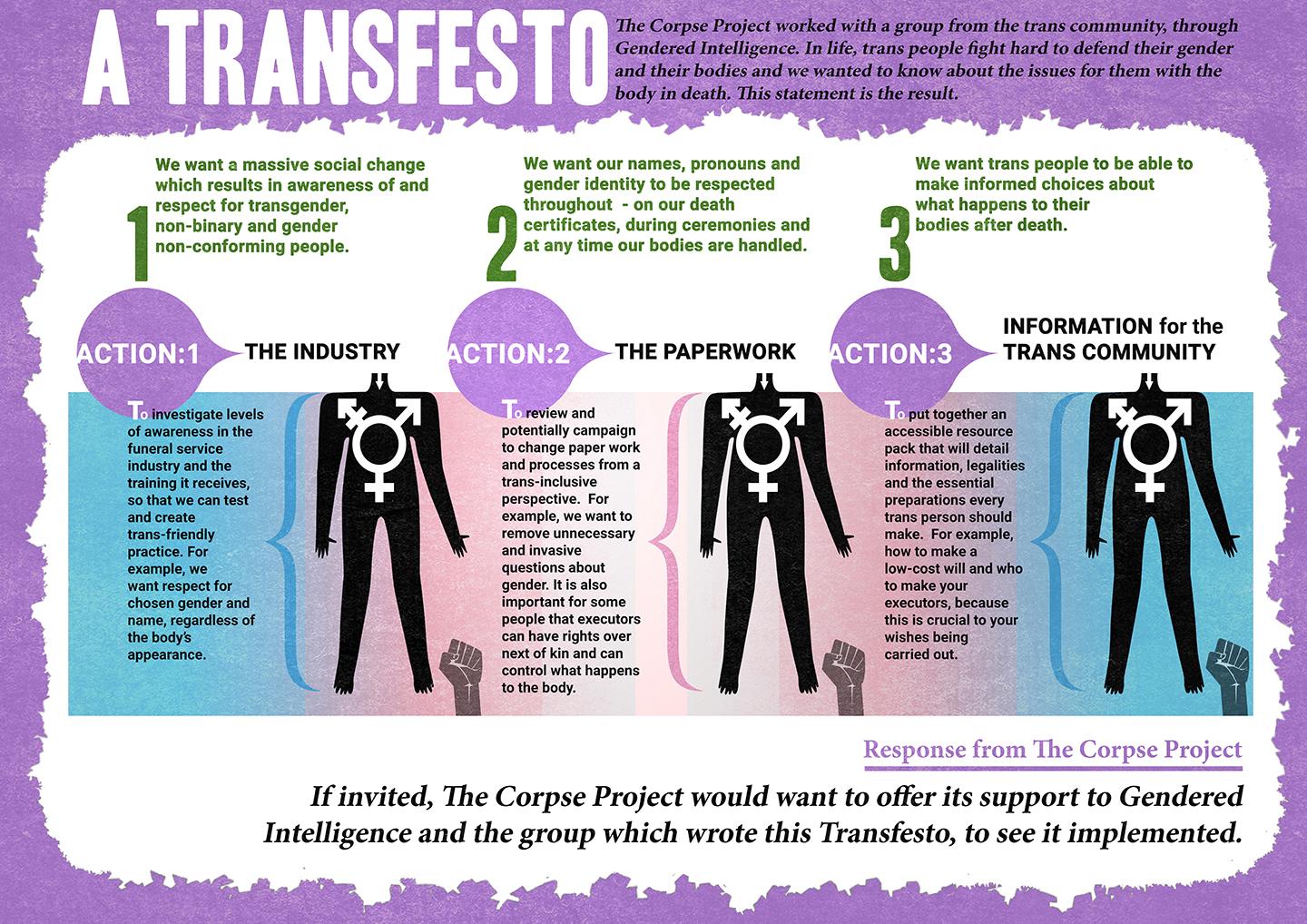'Transfesto’ demands greater awareness of gender identity after death
The Corpse Project hopes to encourage more trans-friendly funeral practices with the help of new research
Your support helps us to tell the story
From reproductive rights to climate change to Big Tech, The Independent is on the ground when the story is developing. Whether it's investigating the financials of Elon Musk's pro-Trump PAC or producing our latest documentary, 'The A Word', which shines a light on the American women fighting for reproductive rights, we know how important it is to parse out the facts from the messaging.
At such a critical moment in US history, we need reporters on the ground. Your donation allows us to keep sending journalists to speak to both sides of the story.
The Independent is trusted by Americans across the entire political spectrum. And unlike many other quality news outlets, we choose not to lock Americans out of our reporting and analysis with paywalls. We believe quality journalism should be available to everyone, paid for by those who can afford it.
Your support makes all the difference.Today researchers and activists in London released a ‘transfesto’, calling for greater awareness of issues faced by transgender, non-binary and gender nonconforming people after they die.
The manifesto calls on the funeral industry to develop more trans-friendly practices and for official death-related paperwork to be more trans-inclusive. It also outlines plans to make trans-specific legal information more easily accessible.
“Trans people must constantly self-advocate in life — for those of us with the privilege to plan for our futures instead of just our immediate survival, there is always a worry for us that our corpses will not be respected in death,” says Morgan Potts, a member of the Dysphoria Collective, who participated in the research.
In death, many transgender people worry that they’ll either be misgendered, or that their gender identity will be challenged or erased altogether by family members, funeral homes or public institutions. Concerns include ensuring that their chosen gender, pronoun and name is used both on official documents and in memorial ceremonies regardless of the body’s appearance.
“I decided to take time outside of what I usually do to specifically think about this head-on, because there’s a very terrifying, looming question of what happens to our bodies when we’re not here to self-advocate anymore.”
Mr Potts, along with a dozen others, explored these issues with a non-profit group called The Corpse Project, which is investigating how bodies are dealt with after death.

In addition to speaking with different groups about their attitudes, concerns and questions related to death, The Corpse Project is also carrying out scientific research and surveying current practices.
The group, which began its research in June of last year, received funding from The Wellcome Trust to carry out its work.
In addition to releasing the ‘transfesto’, today the group has published findings on how to make current cremation and burial practices more eco-friendly.
“We reckon that most people think about their death actively perhaps one day a year,” says Sophie Churchill, leader of The Corpse Project. “So it’s important for them to give it a little more attention.”
“But it’s helpful for you to live a good life if you’re really accepting of the fact that one day it will come to an end. It helps you make the most of every day.”

Join our commenting forum
Join thought-provoking conversations, follow other Independent readers and see their replies
Comments